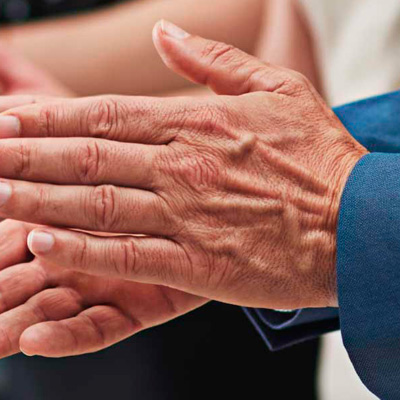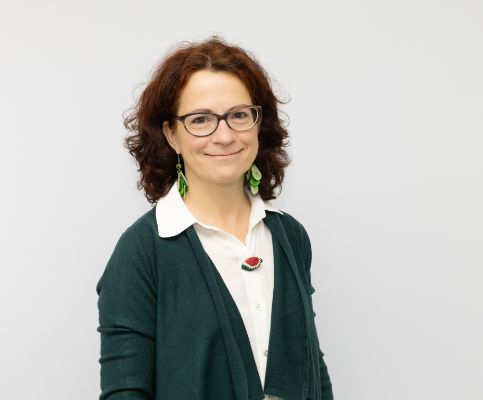

TERESA JURADO GUERRERO
CATEDRÁTICA DE UNIVERSIDAD
SOCIOLOGÍA II (ESTRUCTURA SOCIAL)
FAC.CIENCIAS POLÍTICAS Y SOCIOLOGÍA
(+34) 91398-7339
Academic Information
She studied in Toulouse Le Mirail University in France, and in Mannheim University in Germany, where she graduated. She received her PhD in Political and Social Sciences from the European University Institute in Florence in Italy.
Research activity
Her research interests cover comparing social policies, youth, family and gender. Selected publications include: “Child and family policy in Southern Europe”, 2018; “Against the Odds? Keeping a Nontraditional Division of Domestic Work After First Parenthood in Spain”, 2018, y “Padres y madres corresponsables. Una utopía real”, 2015. She directed the national research Project Implica on men’s work-life balance (www.implicaproject.org) and she coordinates currently de European Commission Action “Men in Care: Workplace Support for Caring Masculinities”, 2019-2022.
Professional experience
She worked at the Freudenberg Foundation in Germany.
Teaching
Asignaturas de Grado:
- 66034041 - TRABAJO FIN DE GRADO (TRABAJO SOCIAL)
- 69024103 - SOCIOLOGÍA DE LA FAMILIA
- 69024020 - COMPARING EUROPEAN SOCIETIES
- 66033076 - ESTRUCTURA SOCIAL (GRADO EN TRABAJO SOCIAL)
- 69024043 - TRABAJO FIN DE GRADO (SOCIOLOGÍA)
- 61011058 - MEDIO AMBIENTE Y SOCIEDAD
Asignaturas de Máster:
Programas de Doctorado:

N.º de tramos reconocidos de evaluación docente
4Research
RESEARCH GROUPS
-
Centro de Estructuras Sociales Comparadas
El ámbito interdisciplinar de investigación del Centro de Estructuras Sociales Comparadas se ve favorecido por la progresiva confluencia del análisis empírico en diferentes ciencias sociales basado en buena parte en el desarrollo de los métodos estadísticos que permiten describir, explicar y simular la dinámica social. Estos modelos cubren cada día más campos del comportamiento humano (individual y colectivo) gracias al creciente acopio de información de los sistemas estadísticos y de los registros administrativos. En esta situación científica, la expansión y consolidación de la Unión Europea, en paralelo con la diversificación regional, posibilitan y fomentan, a la vez que hacen pertinente y fructífero, el estudio comparativo de las estructuras sociales.
El grupo de investigación Centro de Estructuras Sociales Comparadas está reconocido por la Universidad Nacional de Educación a Distancia desde el año 2002 y lo integran personas investigadores del Departamento de Sociología II.
Líneas de investigación:-
Mercado de trabajo y estructura ocupacional
-
Estado de bienestar y análisis de políticas públicas
-
Sociología y demografía de la familia
-
Género, empleo, familia y políticas sociales
-
Desigualdad y cohesión social
-
Análisis de los flujos de migración internacional
-
Integración socioeconómica de la población inmigrante
-
RESEARCH PROJECTS
-
Couples’ Divisions of Paid and Unpaid Labour over the Life Course across Social Class
This project deals with a social class paradox in work-life balance. On the one hand, most resources designed to reconcile work and family life of employed parents in Spain are used by middle-class families and employees who enjoy stable working conditions. On the other hand, and despite the more extended use of family policies, research has not proven that these families have more egalitarian divisions of parenthood than working-class families. Working-class families have often equally or more egalitarian divisions of work than professionals from upper social classes. Even if we may expect those middle-class families and the “educational elite” to be the front-runners of gender equality and equitable work-life balance, this is far from reality.
This project is part of the coordinated research project Social Class Bias in Parenting and Domestic Work: Practices and Policies (CLASSPARENT). The general goals of the coordinated project are: (1) understanding how mothers and fathers in different class positions organised parenthood and domestic work over the life course; (2) how family policies interact with different social class positions to create gender equality in daily life; (3) the role of family policies during and after the pandemic crisis to guaranty parents’ work attachment and gender equality; and (4) how the experience of parenthood intersects with immigration background, class, and gender in different national institutional contexts in Europe.
The first subproject Couples’ Divisions of Paid and Unpaid Labour over the Life Course across Social Class– connected to general goals 1, 2 and 4 - aims at answering the question of how family policies interact with different social class positions to create gender equality in couples over the life course from 2004/5 to 2018. It will be based on focus groups for working-class workers with family responsibilities and three large representative surveys: the ‘Muestra Continua de Vidas Laborales’ (MCVL), the ‘Encuesta de Fecundidad’ 2018 (INE) and the Ad-hoc Module on WLB of the European Labour Force Survey 2018 (EU-LFS-AHM) harmonised by Eurostat. All three surveys offer cross-sectional data for 2018 and some retrospective information on employment trajectories, and the use of leave policies of people with children below age 15.
Scientific-technical Impact of the results
Our results will help to overcome the middle class bias and female bias by focusing on working class families and men. With respect to the scientific impact, we want to increase the knowledge among the community of researchers, teachers and Master students about the social and political drivers of family policies that promote gender and social equality. We intend to publish articles in scientific journals and book chapters in international collaborative publications and plan to participate and coordinate working groups at national and international scientific conferences. With respect to the technical impact, we will contribute to evidence-based policy making through our participation in public debates that aim at improving work life balance in Spain. Our results will provide evidence on how to design and implement public and companies’ work life balance policies to advance towards a more inclusive society. To transfer the results to society, we will organize at the end of the project a public conference together with two associated partners from the civil society. This will be the opportunity to atract the attention of Media to our research results.
N.º de tramos reconocidos de actividad investigadora
4Publications
- PUBLICATIONS IN MAGAZINES Aquí listado en Google Académico
- Teresa Jurado Guerrero, Professor of Sociology (UNED, Madrid, Spain), August 2025
